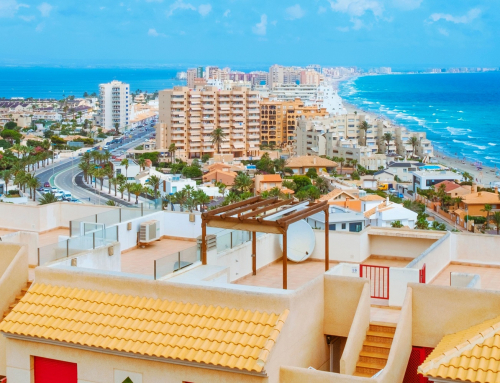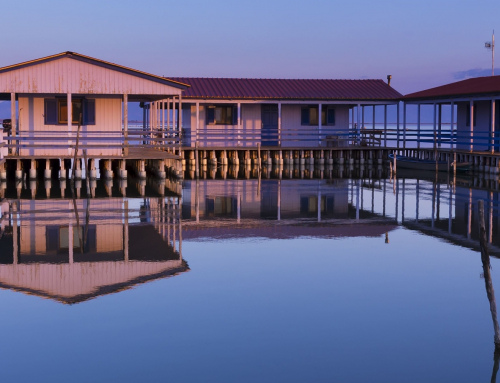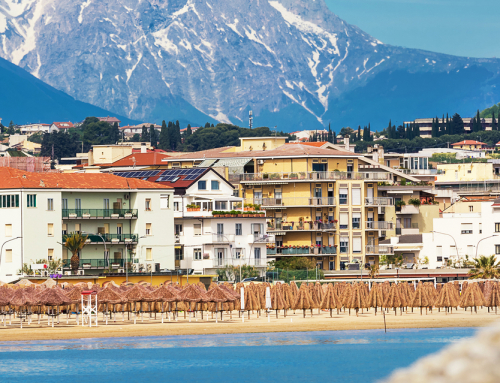We’re in prime move-planning time now – with the skies grey and the temperatures stubbornly low, a new life in sunny climes looks even more appealing. If you want to your property hunt to go as fast as possible, that means doing careful preparation. As soon as you’ve found some properties you’re interested, you’ll want to go out on a viewing trip. But how can you have a successful viewing trip – what should you do beforehand, and what should you get out of it?
What is a viewing trip?
Your viewing trip is the moment that you actually go out to see the properties that have caught your eye. Generally, it’ll take two formats. Firstly, you could organise one yourself. You’d make appointments with the various agents – or independent vendors – and arrange your own travel, accommodation and schedule. Secondly, you could arrange one through an agent. You’ll only see properties on their books, but you’ll have your travel, accommodation, meals and so on all arranged, and will normally get a good introduction to the area as well. Generally this will cost around £99 per person.
By doing it independently, you have the advantage of seeing properties from as many agents as you want. By doing it with a particular agent, you have the advantage of low costs, lack of planning and a good overview of the area, but perhaps less variety in what you see.
Who should go on a viewing trip?
The most crucial point, no matter what kind of trip you go on, is to make sure all decision-makers are involved. Try not to miss anyone out – you want to be able to act fast if you find a property you like. If you have to go home to the UK and discuss with a partner, for instance, you may well find that someone else has put in an offer in the meantime.
A viewing trip can be surprisingly tiring as a lot of ‘information overload’. As such, if you’re doing it through an agent, you’ll find they may recommend that you don’t take children. Secondly, try not to see more than five to seven homes a day. You’ll find any more than that start to blend together, and you can’t quite separate them out.
What should you arrange in advance?
As much as possible, essentially! The key is to be able to move fast: you don’t want to go and arrange anything you need to be able to make an offer after you’ve found your dream home. You want to find that dream home and make an offer immediately.

Make sure you have everything ready and in place before you go on your viewing trip.
This means, above all, working out the finances. Make sure you have a carefully set, realistic budget. Then, make sure you speak to a currency company about how you’re going to get your money across. We generally recommend using a forward contract, which locks in the same exchange rate for no extra cost. It means that you won’t find yourself suddenly stuck as the exchange rate drops between making an offer and actually paying the deposit. The price in euros (or other local currency) is fixed: what that translates to in pound sterling changes literally by the minute. You can find out more about this in the free Property Buyer’s Guide to Currency.
What should you look out for when you’re actually on a viewing trip?
We’ve already had a more detailed look at what to keep an eye out when viewing a house, so do have a read of it.
In general, you’ll want to make sure you have a good look at both the quality of the exterior – is the roof in good shape, do any joints look to be wearing, are there signs of the decay? – and at the interior. For older properties built with less strict codes, do be very careful about things like sound-proofing or health and safety issues like fire escapes if you’re in a block.
Then, think about the inside, from a practical viewpoint. Does the kitchen not only look good but also feel practical? Can you get around easily? Would the layout fit if one of you had reduced mobility in the future? If you’re looking at a part-time holiday home, does seem relatively easy to maintain and clean?
—
Wherever you choose to buy, you’ll need to protect your money from moving exchange rates: Find out how in the Property Buyer’s Guide to Currency
If you find the home of your dreams but it’s beyond your budget, effective negotiation could make the vital difference. Download the How to Negotiate Abroad Guide.
Private sellers ? Advertise on Green-acres
Agency ? Advertise on Green-acres







